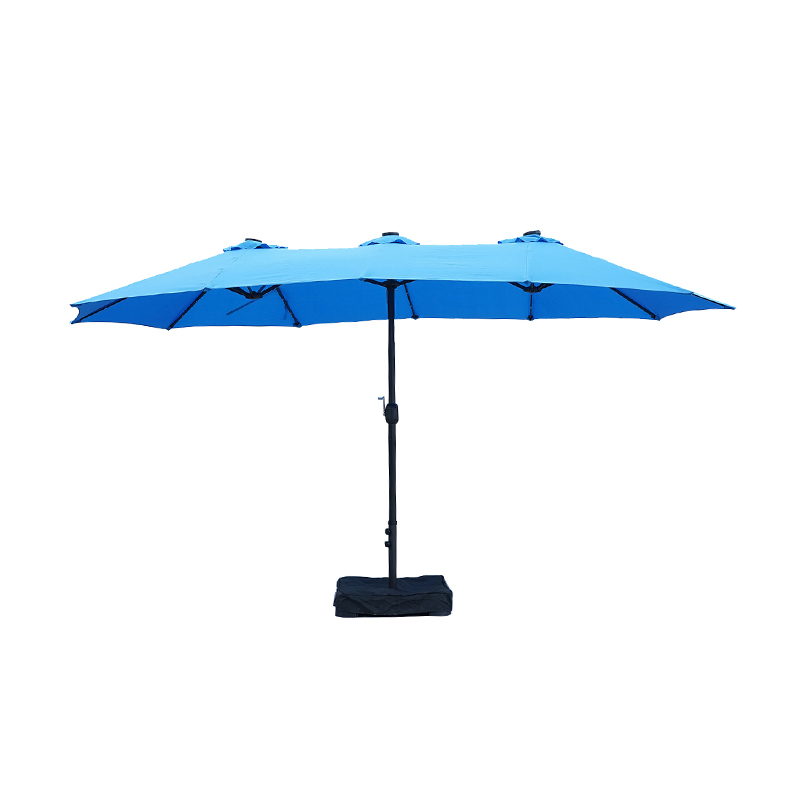2025-09-19

Umbrella shade tents are popular choices for outdoor events, offering a portable and convenient way to protect from the elements. Whether you're hosting a picnic, a beach party, or simply seeking shade in your backyard, these tents provide relief from both the sun and potential rain. But when it comes to choosing the right umbrella shade tent, many people wonder: are they waterproof or sun-resistant?
1. Sun-Resistant Features
Umbrella shade tents are primarily designed to offer sun protection. The fabric used in of these tents is made from materials like polyester or nylon, which are naturally resistant to UV rays. To enhance this sun protection, many umbrella shade tents come with additional coatings, such as UV inhibitors or reflective layers, that help to block harmful rays.
While the primary purpose of an umbrella shade tent is to shield you from the sun, it's important to note that the level of sun resistance can vary depending on the fabric and its coating. Higher-quality materials may provide better protection against UV radiation, ensuring you stay cool and safe from sunburn while enjoying the outdoors. Some tents even feature a special UV coating that offers a higher level of protection.
2. Water-Resistant vs. Waterproof
When it comes to water protection, umbrella shade tents are generally water-resistant rather than fully waterproof. Water resistance refers to the ability of the tent's fabric to repel water to some degree, preventing light rain or drizzle from soaking through. However, the fabric may eventually begin to absorb water during prolonged exposure to heavy rain, especially if the seams or corners are not sealed.
On the other hand, waterproof tents are designed with special coatings or materials that can withstand heavy rainfall for extended periods without allowing any water to pass through. While umbrella shade tents offer a certain degree of water resistance, few are truly waterproof. If you're expecting heavy rain, it may be good to consider additional weatherproofing measures, such as adding a tarp or covering the tent to prevent water from seeping through.
3. Factors Affecting Performance
Several factors influence the sun and water resistance of an umbrella shade tent. The quality of the materials, the design of the tent, and the care it receives all play a role. For example, tents with reinforced seams, higher denier fabric, and added waterproof coatings tend to offer better protection from both rain and sun. Additionally, some tents come with adjustable side panels that can offer extra coverage and help to block wind or rain from entering the sides.
Regular maintenance, such as cleaning the fabric and checking for damage, can also extend the life of your umbrella shade tent and ensure that it continues to perform effectively in both sun and light rain.
4. Choosing the Right Tent for Your Needs
When selecting an umbrella shade tent, it's essential to understand your needs based on the weather conditions in your area. If you primarily need sun protection for outdoor gatherings, a tent with good UV resistance will be sufficient. However, if you expect frequent rain or want more robust protection, look for tents that offer enhanced water resistance or even waterproof options, though they may be less common.
Umbrella shade tents are designed to be both sun-resistant and water-resistant, providing adequate protection against mild sun and light rain. However, they are typically not completely waterproof. Understanding the materials, coatings, and construction of the tent will help you choose the good one for your specific outdoor needs, ensuring you stay comfortable regardless of the weather.
Contact Us for More Details
Don't hesitate to contact when you need us!